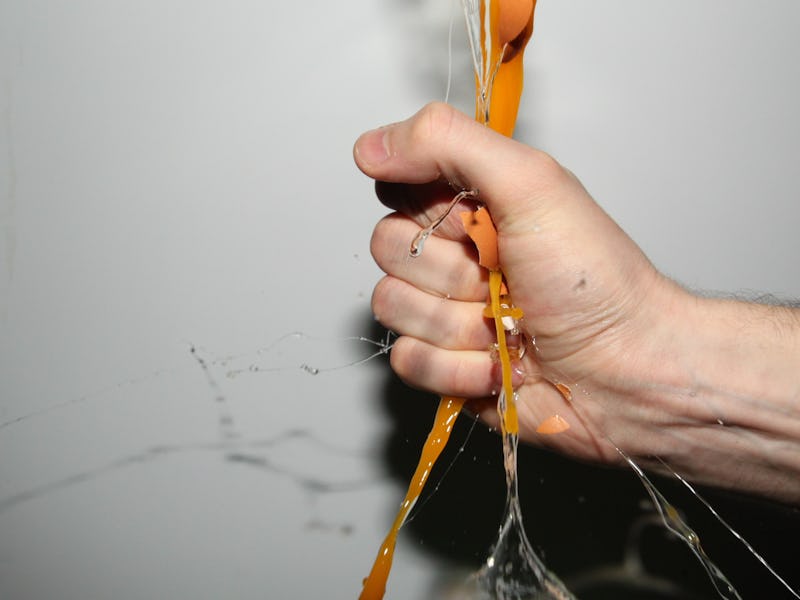Egg Protein Farmer Arturo Elizondo Envisions a Well-Fed World Beyond Chickens
And on his farm he had some yeast.

There are no chickens on Arturo Elizondo’s dream egg farm — and no yolks either. What the CEO of Clara Foods really wants is to harvest pure protein directly by pulling it out of a chemical process devoid of disease-spreading, resource-wasting animals. The biggest creatures he wants to deal with are eukaryotic microorganisms. The guy is, to put it plainly, into yeast.
Elizondo makes synthetic egg whites using yeast, a method he believes to be the future of ovum dealing. Eating egg components of biologically modified single-celled organisms may make some consumers squeamish, but Elizondo considers that a minor hurdle for resource-constrained food system. “It takes over six hundred gallons of water to produce over a dozen eggs,” he points out. Breeding chickens, after all, involves raising the grains to feed the chickens. Breeding chickens causes avian flu and salmonella.
“Protein-based products are in need not only for the developed world but especially for the developing world,” Elizondo tells Inverse. “They’re satiating ingredients. Ultimately, protein is the most important macromolecule, one that provides a lot of nutrition and also less calories, and egg whites in particular are entirely protein based. But [making them] is also the most resource intensive.”
Elizondo is running a business, and as such, doesn’t want to reveal too much about his protein harvesting methods. But he’s quick to point out that yeast can be arranged into incredibly energy-efficient protein farms. Coaxing the single-celled organisms into secreting “powerful” proteins is really just a matter of reverse biological engineering from a chemical goal. Which protein do you want?
The egg whites making up these meringues will someday be squeezed out by yeast, not chickens.
“We asked ourselves, ‘Which are the ones for baking? Which foam the best? Which make the lightest meringues and angel food cakes? Which proteins are the best binders out there so you can make really sturdy gluten-free products?” says Elizondo. The answer: albumins, mucoproteins, and globulins.
The way yeast squeezes these out is similar to the fermentation for producing insulin and rennet for cheese-making for the past 40 years. The difference is that the cheese industry cut out various types of milks and sugars without losing its reliance on livestock; whereas Elizondo is cutting out the value of an animal in its entirely. He wants the chicken gone.
That’s not likely to happen in the immediate future. Clara Foods, which received $1.7 million in seed money last year, is still figuring out how to scale up — but Elizondo’s overall vision is less about the product itself than it is about an approach to creating food. While he hopes his products will decrease our reliance on eggs to manufacture pastas, baked goods, and protein supplements, what he really hopes is that the food industry will embrace technology to eliminate needless waste.
“That’s really the beauty of using high-tech,” he says. “We can truly look at the end product and ask, what are we producing, and how can we produce them in the most efficient way possible?”